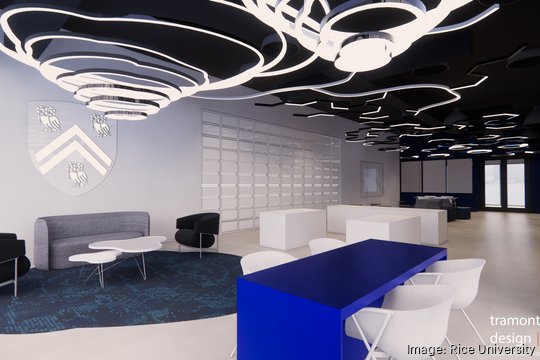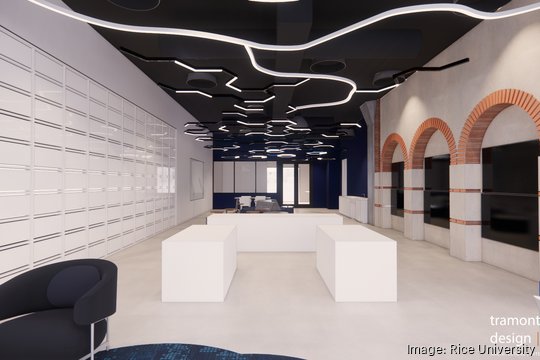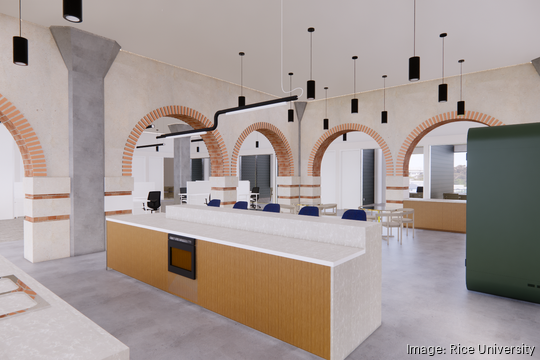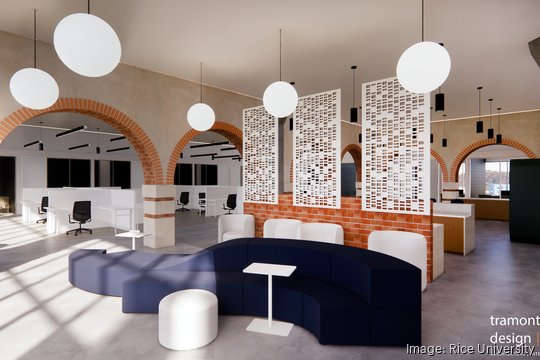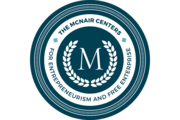A new Rice University makerspace will give the university a larger presence at the incubator standing on its land.
The 10,000-square-foot Rice Nexus will be located on the first and third floors of the Ion at 4201 Main St.
The new space is set to open in the fall as a home to Rice-founded startups. Rice confirmed that Tramonte Design Studios was the architect, Endurance Builders was the general contractor and Transwestern is serving as the project manager. All three companies are based in Houston.
Paul Cherukuri, chief innovation officer and vice president of innovation at Rice, said Rice Nexus is part of a move to establish more of its own presence at the Ion. The incubator is part of the planned 16-acre Innovation District, which also includes the Houston branch of Greentown Labs and is envisioned as a space for living, working and playing in Midtown.
“Before there were always questions of, 'Where is Rice inside the Ion? Why is Rice not participating?'” Cherukuri said in an interview with the Houston Business Journal. “The Nexus represents that portal between our campus and the Ion and the innovation community in Houston.”
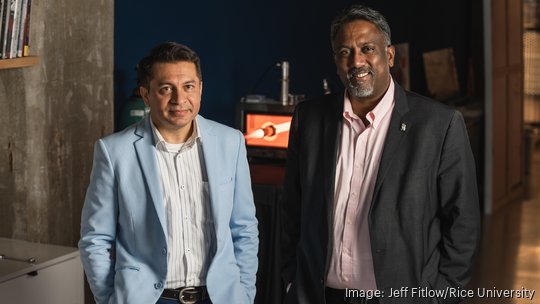
The Nexus will contain lab space, office space and prototyping workbenches as well as a showcase of technology invented by Rice faculty and students. The space that the Nexus will occupy has been reserved and was previously unoccupied within the Ion.
The larger lab spaces in the Nexus are likely to come online next year, according to Cherukuri, but the workbenches will be immediately available this fall.
Cherukuri said that there would be opportunities for companies that are not Rice-founded to partner with the Nexus, but the initial focus would be on startups that originate in the university and need lab spaces or workbenches to develop their products and services.
Some of the companies that will be part of the initial rollout of the Nexus include Solidec, founded by Haotian Wang; Coflux Purification, co-founded by Rafael Verduzco and Pulickel Ajayan; and DirectH2, founded by Aditya Mohite.
Rice did not disclose a price for the project. Two Texas Department of Licensing and Registration filings dated Feb. 8 from Rice Management Co., the entity that owns the land in the Ion District, listed a price of $186,000 and $840,000 for “first generation buildouts.” TDLR filings are preliminary, and the information within is subject to change.
To add some “Rice DNA,” Cherukuri said that stockpiled bricks leftover from construction projects and older buildings on the campus will be installed as decoration for the Nexus.
The Ion already has a smaller Rice lab, which Cherukuri called a “harbinger” for the Nexus, as well as the Ion Prototyping Lab. The Prototyping Lab will remain open to the community, and community members in the Prototyping Lab will have some access to equipment from the Nexus, Cherukuri said.
“It’s not a competition at all; it’s additive if anything,” Cherukuri said.
Further development in the Ion District
The Ion District has been pitched as a mixed-use neighborhood where people can live and play in close proximity to their workplaces in the Ion. This year, the Ion opened a new parking garage and brought in several new dining concepts, such as Café Ion — which replaced the Common Bond On-the-go location in the building — and Japanese restaurant Kokoro.
Houston-based Community Artists’ Collective also will relocate to the Ion District, building out a 2,732-square-foot space at 4111 Fannin St., according to a TDLR filing. The Community Artists’ Collective, which supports Black American artists in Houston, is moving from 4101 San Jacinto St. also in Midtown.
Cherukuri could not provide a concrete timeline for when more development will take place for the Ion’s non-startup offerings.
However, he confirmed that talks are continuing for more lab space to open a block away from the Ion at Greentown Labs. Those labs will be considered “wet labs” and could be used for chemical manufacturing.
“Ideally, it’d be great to make synthetic biology materials, derived materials, nanochemistry inside Greentown Labs,” Cherukuri said. “We’re happy to partner with [Greentown] on the concept and help them get to a point where we can do that.”
Cherukuri estimated the Ion was 90% occupied.
Sign up here for the Houston Business Journal’s free morning and afternoon daily newsletters to receive the latest business news impacting greater Houston.
